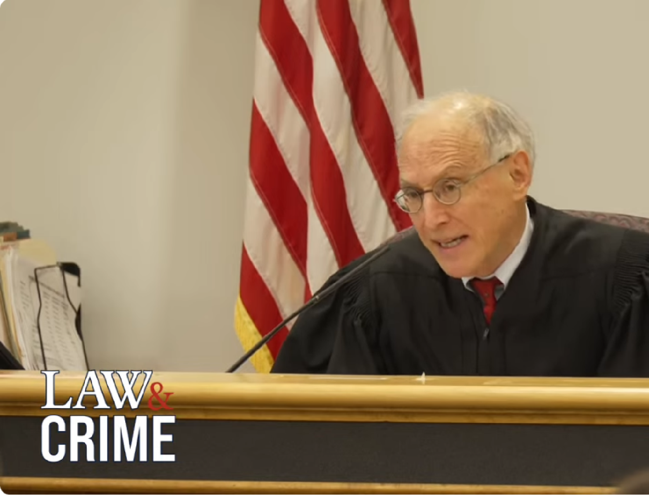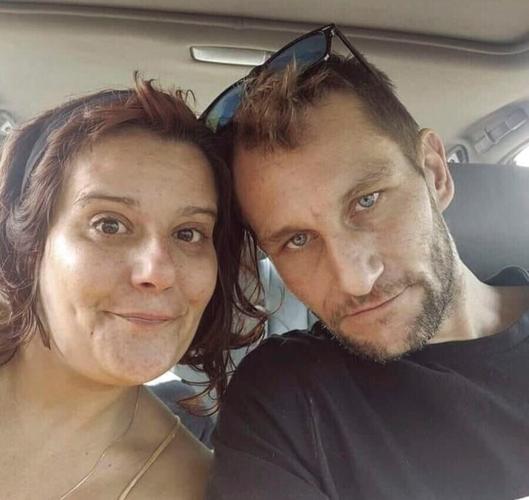OSSIPEE — The trial of an Ossipee man accused of killing his 33-year-old girlfriend and her 8-month-old fetus — the first case of its kind in New Hampshire — ended in a mistrial Monday.
The trial began Thursday in Carroll County Superior Court and Monday marked its third day.
Kelly’s case is the first time someone has been charged with murder in connection with the death of a fetus in New Hampshire, according to the state Attorney General’s Office.
Under a law that took effect in 2018, a person who causes the death of a fetus 20 weeks or older can be charged with homicide or manslaughter. Prior to that, a person faced a lesser charge.
State prosecutors say William Kelly, 39, beat and ultimately murdered Christine Falzone in their rented home at 332 Water Village Road on Dec. 17, 2023. Public defenders say Kelly discovered his girlfriend unconscious and bleeding on the floor of their modest home and tried to save her.
Judge Mark Attorri declared the mistrial following testimony by Trooper Charles Brooks, which he said, combined with earlier testimony from emergency medical responders, compromised the fairness of the trial.
"I just can't say with the necessary degree of confidence that the trial will continue to be fair," Attorri said in granting the motion for mistrial.
Attorri said Kelly will remain incarcerated and that the next step in resolving the case will be to schedule a status conference.
On the stand, Brooks said he sat with Kelly at the State Police barracks in Tamworth for about 10 hours while Kelly was detained. He said Kelly seemed more upset that his dog might be taken away than about the death of his girlfriend.
"The suspect had been advised of his Miranda warnings by Trooper (Michael) Andres, and he had advised that he was not willing to speak to law enforcement without his court appointed attorney," Brooks said.
At that point, Attorri quickly intervened and told the jury to disregard the statement about Kelly not speaking to police. He instructed jurors that Kelly had every right to remain silent.
"You are not to consider his exercise of that right in any way," Attorri said. "Strike that from your mind, it's not to play any role in your consideration of the case."
Prosecuting the case are Assistant Attorney General Brian Greklek-McKeon and Senior Assistant Attorney General Peter Hinckley. Public defenders Brett Newkirk and Katherine Canny represent Kelly.
Newkirk said Brooks’ statement that Kelly invoked his right to remain silent in a "custodial setting is 'Verboten' in terms of constitutional law." He said this was compounded by testimony from emergency medical responders who said Kelly told them he didn’t want to "incriminate" himself when they asked what happened to Falzone.
Attorri said, "I was very unhappy with the trooper."
Greklek-McKeon said the court had made clear to the jury that emergency medical staff and police are two distinct groups and that they cannot consider Kelly’s silence in the context of speaking to police.
On Thursday, attorneys framed the case in opening arguments.
"Christine Falzone was the victim of domestic violence committed behind a closed door by this man right here," Hinckley said in his opening statement, adding that the woman had 100 bruises on her body, black eyes and internal bleeding.
"All of this physical abuse that killed Christine also took the life of her unborn daughter, an otherwise healthy, viable, normally developing fetus who was about eight months long," Hinckley said.
Hinckley said Falzone and Kelly lived in a one-room rented shack not much larger than the jury box, where nine women and five men were seated.
"Christine shared a simple, solitary, remote and isolated existence with the defendant," Hinckley said. "There was no plumbing, there was limited electricity. Few trips were taken outside this small rented property, and there were almost no visitors, just the two of them, Christine and the defendant, the abuser, hour after hour, day after day."
Canny, who gave the opening statement for the defense, said that "Billy" found Falzone on the floor and called 911. She said he was just guessing what had happened when the operator and other responders asked him.
"William Kelly did not kill Christine Falzone and he did not kill their unborn child," Canny said. "Their deaths were a tragedy. They are a tragedy he is enduring, not one that he caused."
She called the prosecutor’s narrative a "story" and a "rush to judgment."
"They wanted to hold someone accountable for what appeared to be a gruesome crime, and they wanted to do it immediately," Canny said.
She said jurors would hear the "fear and emotion" in Kelly’s voice in the recorded 911 call.
She also said Dr. Mitchell Weinberg from the Chief Medical Examiner’s Office never looked for pregnancy-related medical complications that involve bleeding disorders.
The pregnancy was "high risk," Canny said, because Falzone was a former drug user living in unsanitary conditions rife with mold and rust.
Hinckley also summarized the 911 call that was played for the jurors. He said they would hear that Kelly called Falzone "clumsy" and also expressed concern that he might lose custody of his dog, which was later identified as a pit bull. He said the dog has "anxiety" without him.
But Canny said that just because he loved his dog doesn’t mean he didn’t love Christine.
On the stand, 911 operator Joyce Jastrem testified about Kelly’s 911 call and said she tried to guide him as he performed CPR on Falzone. She stressed that the call was only audio and she couldn’t see what was happening. She said Kelly made inconsistent statements about what was going on.
Paramedic Riley Habermann said Falzone was not breathing and had no pulse when responders arrived. She gave Falzone six doses of adrenaline in hopes of restarting her heart. Habermann said Kelly told her the couple used to fight physically and that he didn’t want to "incriminate himself." Habermann said Kelly told her he last saw Falzone alive 15 to 30 minutes before his 911 call.
"Christine did not fall down the side of a mountain, nor did Christine fall down several flights of stairs again and again and again. You saw her humble home and (it) did not have a single step ... She did not beat herself up all over her body. From top to bottom, side to side, front to back to death," Hinckley said.
"The medical expert who conducted Christine's autopsy and documented all the dozens and dozens of separate traumatic injuries that she suffered will tell you what you will already know from looking at and hearing about all of these injuries and from hearing about the defendant's lies about what really happened: Christine's death was a homicide caused by all of these many injuries together. Christine had her life beaten out of her by her abuser, by the only person who was with her."
The trial had been scheduled to continue until Nov. 19.
Law&Crime Trials was livestreaming and recording the proceedings on YouTube. As of Monday, the video of Day 1 has been seen about 31,000 times and can be viewed at tinyurl.com/4w82dn84
Anyone suffering from domestic abuse is encouraged to call the New Hampshire Coalition Against Domestic and Sexual Violence at (866) 644-3574.






















(0) comments
Welcome to the discussion.
Log In
Keep it Clean. Please avoid obscene, vulgar, lewd, racist or sexually-oriented language.
PLEASE TURN OFF YOUR CAPS LOCK.
Don't Threaten. Threats of harming another person will not be tolerated.
Be Truthful. Don't knowingly lie about anyone or anything.
Be Nice. No racism, sexism or any sort of -ism that is degrading to another person.
Be Proactive. Use the 'Report' link on each comment to let us know of abusive posts.
Share with Us. We'd love to hear eyewitness accounts, the history behind an article.